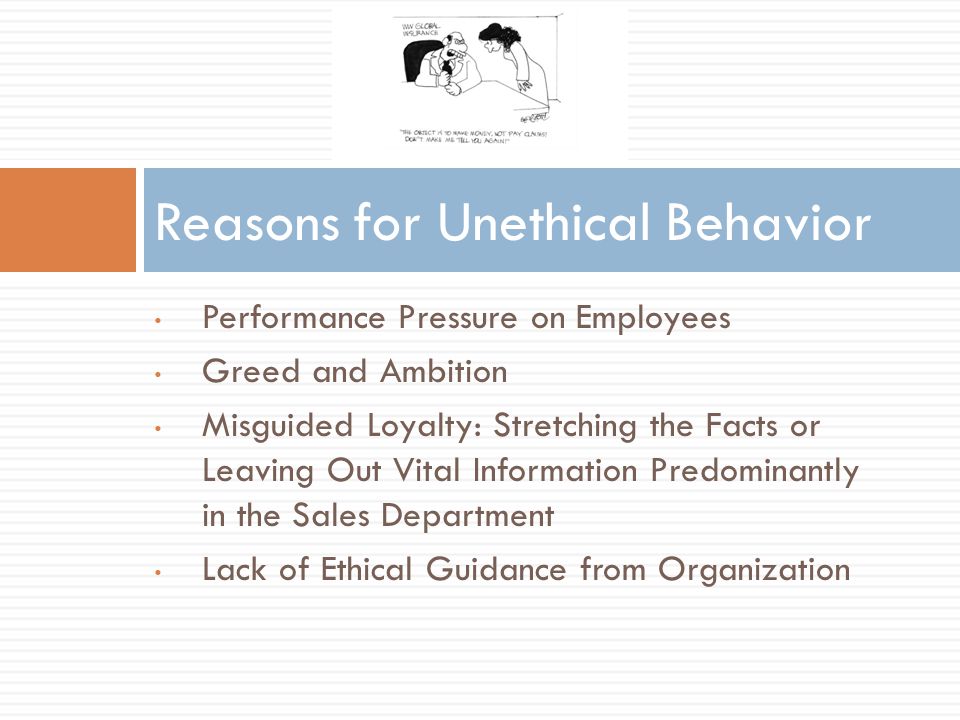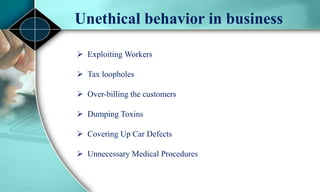Unethical behavior is defined as actions that go against moral principles and values. It can take many forms, such as lying, cheating, stealing, or discrimination. There are a variety of reasons why people may engage in unethical behavior, and understanding these reasons can help individuals and organizations take steps to prevent it.
One reason for unethical behavior is personal gain. When individuals stand to benefit financially or in some other way from engaging in unethical behavior, they may be more likely to do so. This can be seen in cases of fraud or embezzlement, where individuals use their position of trust or authority to take advantage of others for their own benefit.
Another reason for unethical behavior is pressure to meet certain goals or expectations. In some cases, individuals may feel pressure from their superiors, peers, or society to meet certain goals or expectations, and they may feel that the only way to do so is to engage in unethical behavior. This can be seen in instances of academic cheating, where students feel pressure to achieve high grades and may turn to unethical means to do so.
A third reason for unethical behavior is a lack of awareness of the consequences of one's actions. Sometimes individuals may not fully understand the impact of their actions on others or on society, and as a result, they may engage in unethical behavior without realizing the harm it causes. In these cases, education and awareness-raising can be effective in preventing unethical behavior.
Unethical behavior can also be a result of a lack of integrity or moral values. Some individuals may not have a strong sense of right and wrong, or they may prioritize their own interests above the well-being of others. In these cases, it may be necessary to address the underlying values and morals of individuals in order to prevent unethical behavior.
Finally, unethical behavior can be the result of a toxic culture or environment. When an organization or society promotes or tolerates unethical behavior, individuals may feel that it is acceptable or even necessary to engage in such behavior in order to succeed. Addressing and changing the culture or environment can be crucial in preventing unethical behavior.
In conclusion, there are a variety of reasons for unethical behavior, including personal gain, pressure to meet certain goals or expectations, a lack of awareness of the consequences of one's actions, a lack of integrity or moral values, and a toxic culture or environment. Understanding these reasons can help individuals and organizations take steps to prevent unethical behavior and promote ethical behavior.








